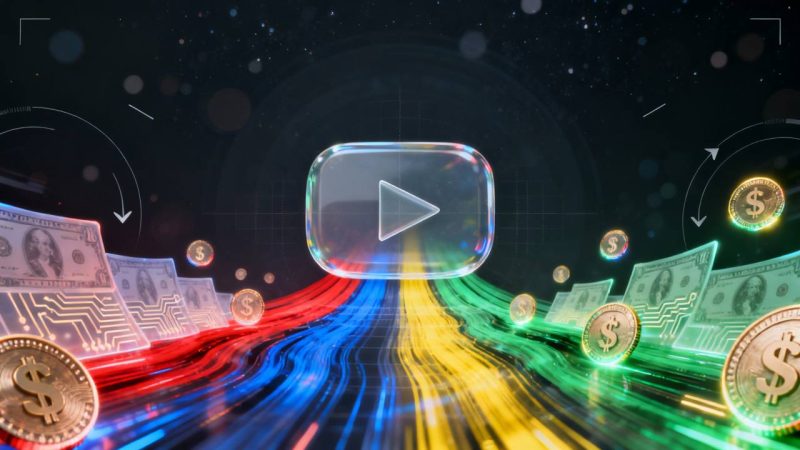YouTube just wrote a $24.5 million check to settle Donald Trump’s lawsuit over his 2021 suspension—a case legal experts long said was a loser on the merits. The money isn’t going to legal fees or victims of an insurrection; $22 million is directed to a nonprofit supporting construction of a new White House ballroom modeled on Mar-a-Lago, with the rest going to allied plaintiffs like the American Conservative Union, per federal court filings and multiple outlets that reviewed them. Alphabet admits no wrongdoing. Of course.
This makes YouTube the last of the Big Three to fold: Meta cut a $25 million deal in January and X (formerly Twitter) paid about $10 million in February, as previously reported by the outlets above. The pattern is not subtle. Neither are the stakes.

The Money And The Optics
According to the settlement notice filed in federal court, YouTube will contribute $22 million “on [Trump’s] behalf” to the Trust for the National Mall to support a lavish new White House State Ballroom, with $2.5 million for other plaintiffs including the ACU and author Naomi Wolf. The agreement dismisses the case and includes the usual corporate boilerplate—no admission of liability—while still serving as a public, eight‑figure act of contrition from a company that once argued it had both the right and responsibility to moderate content after Jan. 6 as per AP and NPR.
That most of the payout funds a Trump‑favored building project at the White House is not a coincidence; it’s a political tableau. Silicon Valley isn’t just settling litigation—it’s helping underwrite the aesthetics of the new presidency.
A Legal Case That Always Looked Thin
Let’s be clear about the law. Trump’s suits argued that social platforms “censored” him in violation of the First Amendment. But the First Amendment constrains the government, not private companies; that’s why these cases were widely dismissed or stayed before Trump’s return to power. Section 230 still protects platforms’ moderation choices; there was no sudden doctrinal shift making these claims viable. As one online speech expert put it, the settlement reads as influence, not vindication.
So why pay? Because litigation is never just litigation when the White House is in the room. Tech companies have enormous regulatory exposure—from antitrust to AI to kids’ safety—and a president who remembers slights. In Washington, a “clean slate” sometimes has a price.
The New Moderation Math
YouTube’s settlement lands amid a broader rollback of platform guardrails erected after 2020. YouTube stopped removing 2020 election misinformation in 2023 and recently moved to reinstate accounts banned for persistent Covid and election falsehoods—part of an unmistakable thaw toward right‑wing creators who drive serious traffic and serious ad revenue.
The incentives aren’t mysterious. Platforms want growth; the administration wants deference and a friendlier information ecosystem. The losers are the civic standards we painfully constructed after January 6, and the public’s ability to tell truth from virality when it matters most.
The Quid Pro Quo Question
Democrats are already asking whether these payouts are more than legal housekeeping. In August, Sen. Elizabeth Warren and colleagues warned Alphabet that a settlement “to curry favor” could veer into illegal bribery territory—a stark charge aimed squarely at the heart of corporate Washington’s transactional culture.
Will anyone prove a quid pro quo? Probably not. Will it change behavior? It already has. The visible effect is a chastened Big Tech adopting a posture familiar from earlier eras of concentrated private power: apologize with your checkbook, keep your options with the state open, and move on.
The Global Democratic Angle
What happens in the United States doesn’t stay here. When the world’s most influential platforms turn down their moderation dials under political pressure, authoritarians everywhere take notes. If the message from Washington is that guardrails are negotiable, that truth will be collateral, and that power can purchase absolution, it emboldens the worst actors globally. Democracies that looked to U.S. platforms to set a higher bar—on elections, on vaccines, on violence—are left with a vacuum.
That doesn’t mean platforms should be deputized censors. It means they should be consistent, transparent, and grounded in democratic values beyond any one president’s fortunes. The post‑Jan. 6 consensus—imperfect, improvised, essential—was a start. This pivot is not.
What To Watch Next
- Policy for favors: Does the administration ease antitrust heat or regulatory scrutiny on YouTube/Google in ways that correlate with these settlements? The Warren letter suggests congressional oversight is coming.
- The moderation floor: YouTube’s reinstatements are a test. If the next election cycle is flooded with recycled lies under the banner of “valuing conservative voices,” we’ll learn a lot about where the floor really is.
- The copycats: Meta paid more; X paid less. Expect smaller platforms and publishers—already settling with Trump—to read this as a blueprint for de‑risking through tribute rather than precedent.
The unromantic truth is that institutions—public and private—signal their values with their budgets. YouTube’s payment is a signal. So is the ballroom it will help build. The question for voters, lawmakers, and the platforms themselves is whether we want a democracy where truth is a line item and accountability an expense to be amortized.
